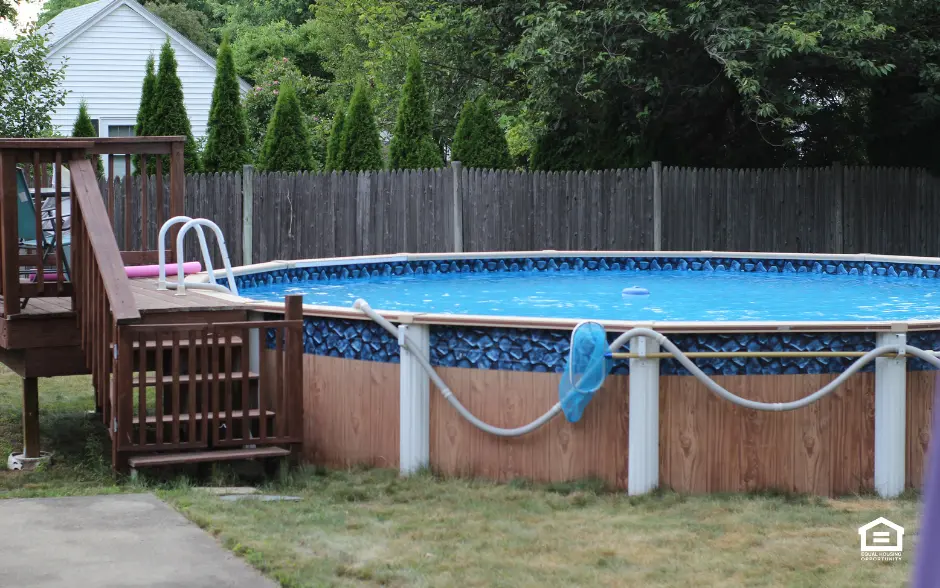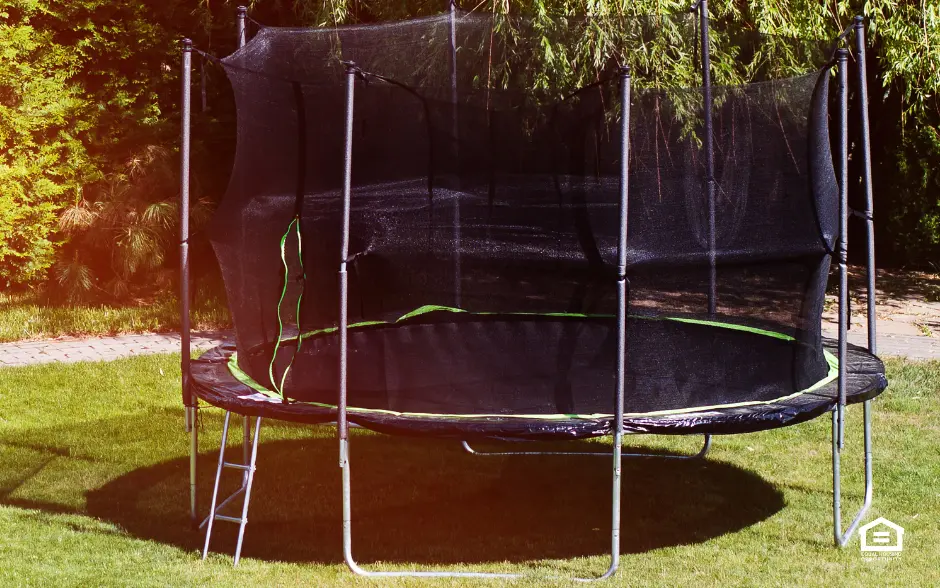What to Do When Tenant Adds Large Items in Yard
Large items in the yard of your rental properties can turn into big problems for you and your tenants. Tenants often enjoy personalizing a rental home with their own belongings, and that personalization may sometimes extend outside to the yard. Most of the time, small items like a patio chair or a wall hanging are tasteful and attractive additions to a rental house. But what if your tenant adds large items like basketball standards, trampolines, above-ground swimming pools, or even a shed or playhouse to the yard without notifying you first? Some tenants may even want to store their boat or RV on the property, or plant trees or bushes in the yard, and do it without your permission. If these additions endanger your residents or the neighbors, cause permanent damage or alteration to the landscaping, or violate local regulations, your tenant’s big outdoor belongings could lead to trouble

There are many reasons why a property owner should think twice before allowing tenants to keep large items in the yard of the rental house. Statistics show that some popular outdoor items, especially trampolines and above-ground swimming pools, carry a high risk of accident and injury. For example, a 2014 study found that trampolines alone sent more than 1 million people to the hospital between 2002 and 2011. That is roughly 100,000 people treated for trampoline-related injuries each year. Large structures, including sheds and playhouses, may permanently damage the ground beneath them, creating an expensive hassle when and if the structure is eventually removed. Adding trees and other elements may also wreak havoc on a clean and low-maintenance yard, or even kill or damage the plants already growing there. Once your tenant has altered your property’s landscaping in such a way, it can have a dramatic effect on both your property values and your ability to rent the property to future tenants. Other reasons to restrict tenants from keeping large items on the property involve running afoul of local regulators. There are many items that violate common owner’s association covenants, conditions, and restrictions, or other local regulations. Items such as basketball standards, boats, and RV’s, things that are visible from the street, that are blocking driveways or side yards, or that are encroaching on common areas are often prohibited by such regulations.

If your tenant decides to store or install any of these items on your rental property without your permission, you could find yourself in serious financial and legal trouble. But trying to make your tenant remove large items from the property after the fact can be a challenge. Matters involving tenant personal property must be approached carefully, or you risk making things worse by creating anger or resentment and, in worst-case scenarios, end up in a legal battle with your tenant.
The best way to avoid the hassle and expense of such liabilities is to prevent them from becoming a problem in the first place. Clear and strong lease language is your first line of defense against a tenant bringing large items onto the property. Carefully articulating in your lease documents what is and is not allowed, and the consequences for ignoring these terms, can go a long way toward keeping your tenant from bringing large and bulky items in without your knowledge. It is equally important to do regular property evaluations as well, to ensure that tenants are holding up their end of the lease. This is especially true for long-term tenants, who may forget or take advantage of your goodwill. If a tenant has brought large items onto the property, the matter should be dealt with immediately. This is because the longer the tenant has the item on the property, the more attached they will become and the harder it will be to get it removed. When added together, all of these aspects of tenant oversight take up quite a lot of time.
As a property owner, your time is as good as money. This is why hiring Real Property Management is such a good financial decision. We provide lease documents with the specific language property owners need to protect their real estate investments and their tenants. We also provide tenant education and regular property evaluations, ensuring your tenants are complying with the terms of the lease.
We are pledged to the letter and spirit of U.S. policy for the achievement of equal housing opportunity throughout the Nation. See Equal Housing Opportunity Statement for more information.
Get the Neighborly App
In addition to Real Property Management's expert skills in managing your rental property, you can utilize Neighborly's other brands to maintain and enhance your home. Use the Neighborly App to get connected to local home service professionals. Download and receive offers only available on the App.
Depending on current health and safety regulations in your area, some of the services mentioned in this post may not be available. Neighborly service providers will follow the latest health and safety guidelines provided by the local and state governments. Please check with your local Neighborly service provider for details at the time you need service(s).






